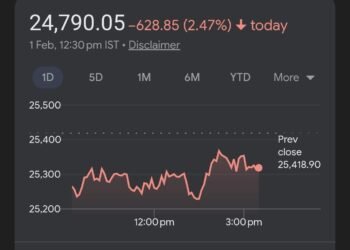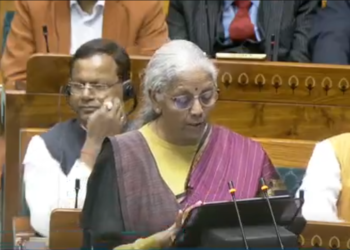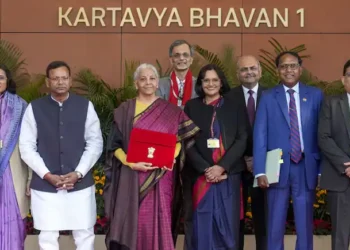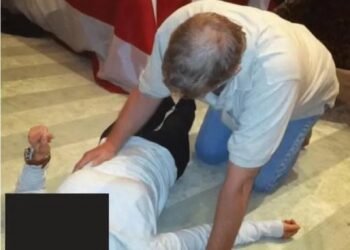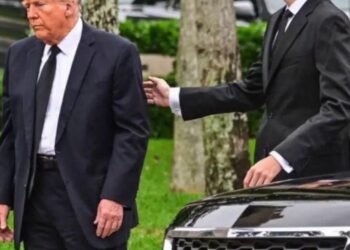Tensions rise in Manipur as the Supreme Court orders a forensic examination of audio tapes that reportedly capture Chief Minister N Biren Singh inciting ethnic violence. The tapes, which have already been verified by forensic labs, could have significant legal and political implications for the Chief Minister amid the ongoing ethnic clashes
BY PC Bureau\
The Supreme Court of India has called for a forensic examination of audio tapes allegedly featuring Manipur Chief Minister N Biren Singh, in which he is accused of instigating ethnic violence in the state. The court has directed the Central Forensic Science Laboratory (CFSL) to submit the forensic report in a sealed cover. This decision comes amid growing concerns over the ongoing ethnic conflict in Manipur and the Chief Minister’s involvement in the turmoil.
The Supreme Court bench, led by Chief Justice of India Sanjiv Khanna and Justice Sanjay Kumar, made the ruling after the audio tapes were presented by advocate Prashant Bhushan, representing the petitioner. Bhushan claimed that the tapes revealed Singh’s alleged role in inciting violence between ethnic groups in the state. The Chief Minister has vehemently denied the accusations.
The matter will be heard next in the week commencing on March 24.
Advocate Prashant Bhushan, who represented the petitioner, argued that the concerned audio tapes were examined by ‘Truth Labs’ which had certified that the voice belongs to the Chief Minister by over 93%, LiveLaw reported.
He argued that Biren Singh could be heard saying in the tapes that he allowed Meitei groups to loot the state armory and also that he allegedly ensured their protection from arrest.
Background of the Allegations
The ethnic violence in Manipur has escalated in recent months, with widespread clashes between the Meitei and Kuki communities, resulting in numerous casualties and displacements. The tension has been exacerbated by allegations of systemic discrimination, land disputes, and calls for greater autonomy by the Kuki community.
At the heart of the controversy are the audio tapes, which were reportedly recorded during a private meeting. Bhushan, while presenting the tapes in court, claimed that they had been verified by Truth Labs, a forensic agency, confirming that the voice on the tapes belonged to Chief Minister Biren Singh with 93% certainty.
We stand firmly with the chairman of Kuki Organization for Human Rights Trust (KOHUR), Pu. @BenjaminMate1, who’s working incessantly to expose the truth about #ManipurTapes. It’s highly deplorable that @Ccpur_Police & Tengnoupal police is hounding an innocent civilian.@pbhushan1 pic.twitter.com/FuSXlRWYvc
— Ravinder Kapur. (@RavinderKapur2) February 2, 2025
According to Bhushan, the audio clips reveal Singh allegedly making comments that he had allowed Meitei groups to loot the state’s armoury and had ensured that these groups were protected from arrest. These comments, if true, would indicate not only an endorsement of violent behavior but also active encouragement and support for those involved in the clashes, which have claimed lives and displaced thousands of people.
Bhushan referred to these tapes as “serious evidence” that pointed to Singh’s role in inflaming the ethnic violence. He further stated that the Chief Minister’s statements were made behind closed doors and later leaked, suggesting that Singh had been using his position to stir unrest and protect those involved in the violence.
What’s at Stake?
The order by the Supreme Court to submit the forensic report is a significant development, as it directly implicates the Chief Minister in the ongoing crisis. The tapes, if proven to be authentic, could have serious legal and political ramifications for Singh’s leadership, further intensifying the calls for his resignation by opposition parties and civil rights groups. The investigation will also likely fuel further scrutiny of Singh’s handling of the Manipur conflict, which has already been a subject of criticism due to his government’s alleged failure to prevent the violence.
KOHUR strongly condemns the Manipur Police’s targeting of Chairman H.S. Benjamin Mate in the N. Biren Singh audio leak case, labeling it a direct assault on judicial authority and an attempt to suppress accountability. @BenjaminMate1 pic.twitter.com/mFj6ZHWg2n
— Hen Kuki (@HennaryL) January 30, 2025
This ruling also sheds light on the broader issue of ethnic and communal violence in Manipur, which has seen tensions between the Meitei and Kuki communities reach alarming levels. Human rights organizations have raised concerns about the government’s handling of the situation and its failure to protect marginalized groups from targeted violence.
ALSO READ: Internet Goes Wild After Kanye West and Bianca Censori Kicked Out of the Grammys
Militant Arrested in Manipur Amid Clashes
In a related development, security forces in Imphal West district arrested a militant from the banned Kangleipak Communist Party (People’s War Group). The insurgent, identified as 29-year-old Leihaothabam Nanao Sharma, was allegedly involved in extortion activities targeting government employees, shopkeepers, and the general public in the Greater Imphal area. The police operation highlights the ongoing security challenges in the region, which are compounded by the ethnic violence and insurgency activities.
Sharma’s arrest underscores the complex nature of the unrest in Manipur, where armed groups and ethnic communities are embroiled in conflict, and the security forces face significant challenges in restoring order.
Public Reaction and Political Fallout
The controversy surrounding the audio tapes has sparked outrage both within and outside Manipur. Opposition leaders have called for an immediate investigation into the allegations and demanded accountability from the Chief Minister. Several political parties, including the Congress and the Communist Party of India (Marxist), have accused Singh of fanning the flames of communal violence for political gain.
ALSO READ: This scandalous video will tell you why Bianca Censori and Kanye got the boot from the Grammys
Civil rights organizations have also expressed concern over the possibility of a cover-up, urging the government to allow for an independent investigation into the claims. “If the tapes are genuine, this would be a gross violation of public trust,” said a representative from a prominent human rights group. “The government must act swiftly to ensure justice is served.”
Meanwhile, the Chief Minister’s office has issued a statement denying the authenticity of the audio tapes, claiming they were fabricated to malign Singh’s reputation. However, the ongoing investigation and the forthcoming forensic report are expected to determine the veracity of these claims.
he Supreme Court’s decision to examine the audio tapes in detail marks a crucial step in understanding the full extent of the alleged involvement of N Biren Singh in the ethnic violence in Manipur. With mounting pressure from opposition parties and civil society groups, the outcome of the investigation could have far-reaching consequences for the state’s political landscape and the future of the ongoing conflict.
As the situation continues to unfold, the forensic report from the CFSL will play a pivotal role in shedding light on the truth behind the allegations and determining whether the Chief Minister has a case to answer for his role in the unrest.




